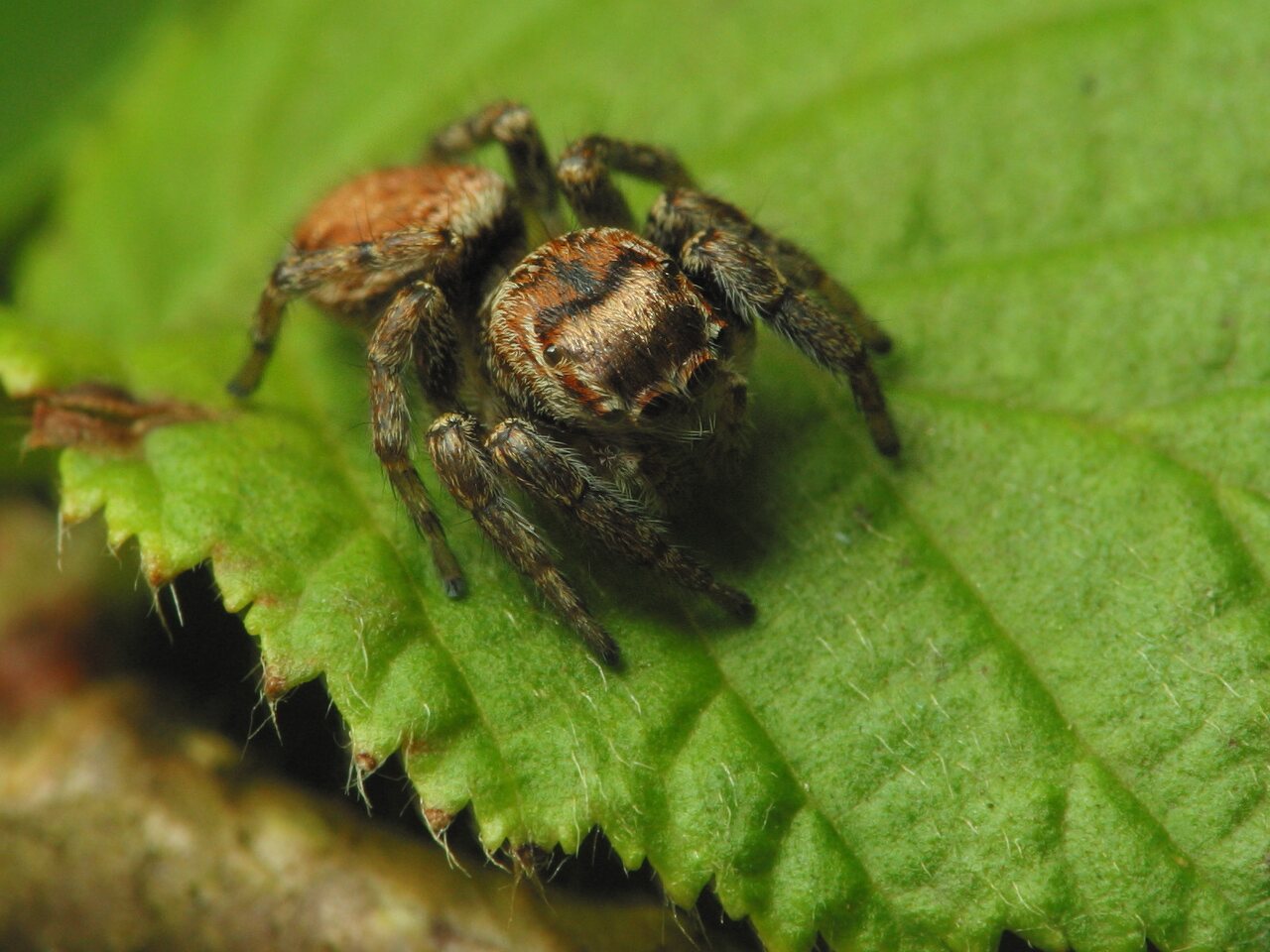
Evarcha falcata · pjautuviškasis musgaudis
- Bunter Sichelspringer
- kangassirppihypykki
- pjautuviškasis musgaudis, blizgantysis musėgaudis
- pyrgun zwyczajny
- brokhoppspindel
en.wikipedia.org/wiki/Evarcha_falcata This species is present in the Palearctic realm, from Europe, Turkey, Caucasus, Afghanistan, and Russia to Kazakhstan and China. These jumping spiders prefers dry habitats, especially the sunny edges of forests with dense vegetation, grass, shrubbery, clearings and sparse woodlands.
Evarcha falcata body length 5.0–7.7 mm in females, while males reaching 4.3–5.9 mm. The upper side of the cephalothorax (prosoma) of the male is light brown in the anterior half, dark brown or black in the back half. Behind the eyes and at the sides of the cephalothorax there are wide, light beige, or white stripes. The center of the abdomen (opisthosoma) is light brown, framed by black and white stripes. The frontal area of the eyes is covered with light hairs. Also pedipalps are covered with longer, light hairs. Legs are light brown.
Cephalothorax and abdomen of the females are densely covered with brown hairs, without any light or black stripes and spots. On the abdomen of the males there is sometimes an indistinct drawing of bright oblique spots, similarly to Evarcha arcuata, but the latter has longer white hairs on the face.
Adults of both sexes can be found from March to November. They are diurnal jumping spiders with a good visual and hunting ability. These spiders hide mainly in the lower tier of vegetation. They move in the thick of the grass, looking for their prey. During mating the male climbs the female backwards and in this condition moves along with the female for a long time. Then the male moves down to the side and inserts the pedipalps into the female epigyne.
‥
0 comments
Add a comment